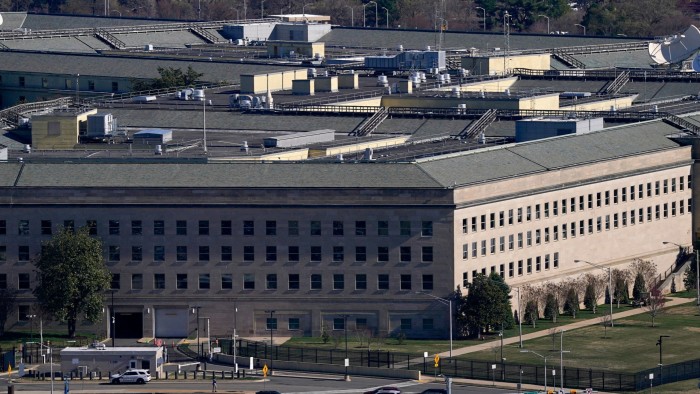Unlock the Editor’s Digest for free
Roula Khalaf, Editor of the FT, selects her favourite stories in this weekly newsletter.
Booz Allen Hamilton shares tumbled more than 10 per cent in pre-market trading on Friday after the consulting firm signalled lower than expected profits after being targeted by President Donald Trump’s administration.
Booz Allen is one of 10 firms subject to a federal government “consultant spend review” aimed at saving US taxpayers billions of dollars by cancelling or renegotiating contracts.
The company on Friday provided revenue and earnings guidance for the current financial year for the first time since the review began and said it would cut about 2,500 staff.
“All presidential transitions create some degree of near-term disruption, followed by opportunity,” chief executive Horacio Rozanski said on a call with analysts. “We now see that these dynamics are indeed in play, at a rate and speed that is beyond what we originally expected.”
Booz Allen has been among the firms hardest hit by the Trump administration’s determination to slash government spending, and the cancellation of contracts deemed wasteful by Elon Musk’s so-called Department of Government Efficiency (Doge).
The company last month offered to give up or alter contracts to provide the US government with savings of more than $1bn.
Rozanski said Booz Allen would cut staff in the parts of the company that work for the non-defence agencies of the US government.
In annual results announced on Friday, Booz Allen said its revenue growth would be 4 per cent or lower. Its forecast range for adjusted earnings before interest, tax, depreciation and amortisation was $1.32bn to $1.37bn, about 5 per cent below a consensus of analysts’ forecasts compiled by Bloomberg.
Booz Allen shares were down 30 per cent since Trump’s election in November before Friday’s earnings report.
Doge claims to have saved $3bn from 362 contract cancellations and modifications involving the 10 consulting firms.
The actual savings are hard to calculate and certainly lower. Doge values cancelled contracts on the basis that they always cost the legal maximums. It has also altered estimates after errors have been noted in the media.
A Financial Times analysis of federal contracts database confirms a marked increase in cancellations for the 10 companies, which have been running well above historical norms since Trump’s presidential inauguration in January.




